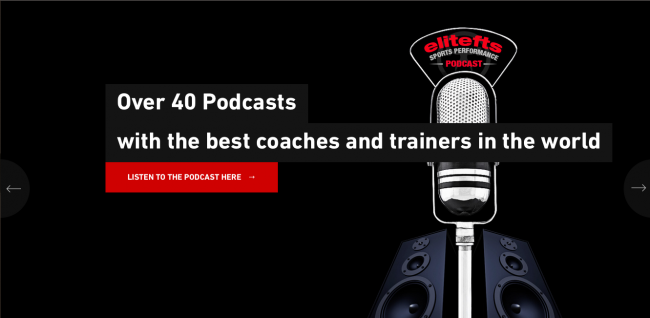
A few years ago someone shared an article with me when I still coached at Denison. Not sure if it was Greg Parini or Brian Hortz or how they shared it with me, but it was one of the documents I brought with me when cleaning out my office. I finally started going through some old boxes and I found an article from Cracked.com by David Wong on his End Times Report. The article was called 6 Harsh Truths That Will Make You a Better Person. One thing I noticed about the article I had printed out was there was only one of the harsh truths printed out. The last one listed and #1 truth on the list. That reason, which was Everything Inside You Will Fight Improvement, had five examples and really was the most pertinent for coaches. The rest of the article is outstanding, but reason #1 was worth a look for coaches. Wong breaks it down with these self-imposed rejections toward self-improvement.
Intentionally Interpreting Any Criticism at an Insult
Coaches today sometimes become emotionally attached to just about everything from PRs to wins to how other people train. That is not always a bad thing as it show passion. But, sometimes when we are criticized, we often think the worst. Whether it is from our boss, our wife, or some dickless troll on the internet; we get our feelings hurt. We as coaches need to get better at identifying what to flush and what to put into action. Whether it is to save our jobs or our sanity. It is human nature to expect the worst in people. It's a defense mechanism. Going back to the essential Lencioni and making the connection between the absence of trust and the fear of conflict.
- Head coaches cannot be threatened when an assistant disagrees with them.
- That assistant cannont be afraid to voice his/ her opinion at the appropriate times
- Head coaches need to feel comfortable constructively criticizing their assistant's performance without them crawling under a desk
- Assistants have to understand that being coached and mentored is not personal. Function over feelings.
If your head coach doesn't get on you, you're in trouble.
If you're yessing your boss and not disagreeing with him/her because you are afraid; then you are no good to them.
Focusing on the Messenger to Avoid Hearing the Message
The first thing we do when he see an article shared on social media is "who wrote it?" We have already made up our mind most of the time whether it will be worth our time or not.
This works several ways. There are some people that will always have a voice because of who they are. Someone with an unbelievable total, coached great athletes, or is at a Large DI school already has the attention of most. Not taking anything away, they earned it. But assuming someone is going to help you and subsequently your team because they are strong themselves is foolish. Sometimes the great athletes don't make great coaches. Playing was easy for them and they may have always been one of the strongest.
Cy Wakeham touches on this in her book Reality-Based Leadership. She constantly talks about facts and what is really true about the message. She urges not to make assumptions based on the messenger. Think about it. For a coach, anytime an athlete starts a conversation with:
- My personal trainer back home said this...
- My pitching coach said I should do this....
- My old strength coach suggested I do this...
Before we even know what "this" is, we have already dismissed because of who we are told said it.
Focusing on the Tone to Avoid Hearing the Content
Drop an F-Bomb the next time you are in a department meeting or speaking at a clinic. There is a good chance that anything you say afterwards will not even be heard. Not saying F-Bombs are bad, but in certain settings, you just forced people to put their guard up. Your first paragraph in your last article that tried to explain why you are right by saying everyone else is dumb...may not have helped. Even if they continue to read, their intentions are to find flaws in you, not just your article.
E-mails are another way that people make their own fantasy scenarios about what the person sending the e-mail really meant. We substitute our own perceptions whether they fit or not. You can read the same message an number of different ways. Repeat the message out-loud in several different tones may help you avoid assumptions.
Revisiting Your Own History
We all have a tenancy of going back in time and changing the reasoning of why we did what we did to line up with our moral compass. I have worked for guys that were masters at it. Changing the way we perceive of why events turned out the way they did. We as coaches and as human beings fight change with everything we got.
Sometimes we want changes without actually changing our actions. We feel a coach is going to "buy in" just because time has passed. Or that an athlete will eventually "get it" just because they show up. Being proactive in how we coach is an essential. Changing how we think the past happened won't change the future or help us understand why things happened the way they did. Issues you had in the weightroom 5 years ago are still issues today if you never figured out how to address them. Problems usually just don't "go away" on their own.
Pretending That Any Self-Improvement Would Be Selling Out to Your True Self
This is pretty deep if you think about it. Sometimes becoming a better coach means changing our habits. Those habits first require a change in mindset or thought process. The biggest mistake we make is assuming that change negates our values and beliefs we had beforehand. Finding a new way to teach the squat should not mean we have forgotten about how we learned or how we taught the squat for that many years. It's just a different way to communicate. Learning form others means you can effectively communicate with others.
There are always meetings, presentations, articles, book, etc. that influence us. The deceleration method by the Parisi school, Lee Taft's way of teaching agility, or Andy Deck teaching a better way to do a log press; are all ways that I had learned something differently. Those "a-ha" moments are not betrayals to our principles, they are vessels to improve ourselves as coaches.
Finding our coaching philosophy while acclimating to our environment is one of the biggest conundrums we face as coaches. As long as we understand that those philosophies are adaptable and can coincide with our underlying principles, we are on the right track.
ECCENTRIC WEEK
SATURDAY
Log Clean and Press (3 sec ecc)
ISOMETRIC WEEK
TUESDAY AM
SS Yoke Bar Squat (3 sec pause)
- 260 x5
- 260 x5
- 260 x5
Supersetted with...
Box Jumps
- 3x5
Glute-Ham Raise
- Pin 2 x2 (wore weightlifting shoes and these made a huge difference. not cool)
- Pin 3 x10
GHR Sit-Ups
- 1x15
Elitefts™ 10" Strongman Log
0-90 Incline Bench
Hi-Temp Bumper Plate
Croc-Lock Collar
Elitefts™ SS Yoke Bar










1 Comment